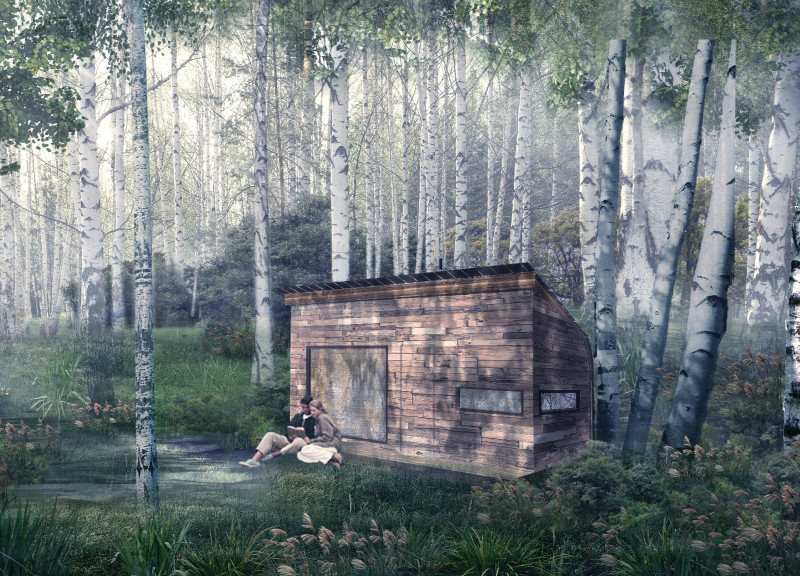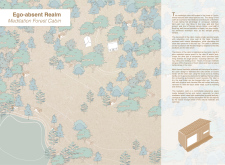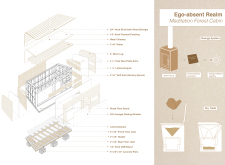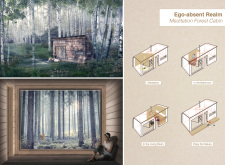5 key facts about this project
The Meditation Forest Cabin is situated in the tranquil woodlands of Ozolini, surrounded by a variety of mixed-species trees. The building is designed for meditation and offers basic living facilities. The concept focuses on simplicity and sustainability, working closely with the natural landscape, while taking cues from traditional architecture in Northern Europe.
Site Integration
The design features a well-thought-out layout that separates the meditation area from the compact living space. The meditation room is positioned to provide expansive views of the surroundings, with large openings that allow sunlight to bathe the interior. The living area, on the other hand, comes with essential amenities like a bathroom and kitchenette, prioritizing functional and straightforward living.
Materiality and Aesthetics
The exterior is marked by a single opening facade and an extending roof at the back, offering both shelter and visual unity. The choice of materials reflects a focus on local practices, including a birch-bark roof and clay filling for the walls and floor. Norway spruce is used for the stud walls, while birch logs make up the outer walls, with thatch providing insulation. These materials enhance the overall look and engage the senses with their natural textures and fragrances.
Thermal and Utility Considerations
Addressing thermal performance is crucial in the design, utilizing multi-layer insulation to cope with the cold winters of Ozolini. A wood stove facilitates both heating and electricity generation, making use of locally sourced gymnosperm wood. The cabin also employs a dry toilet system for easy upkeep and features a water collection tank equipped with filters to purify rainwater, highlighting the focus on sustainability.
Interior Experience
The layout inside is crafted to support a calm and reflective atmosphere. The thoughtful use of natural materials ensures a connection to the outdoors, promoting an environment suitable for meditation. Through the interplay of light and sound, along with the presence of the surrounding forest, the cabin fosters a deep sense of engagement with nature. The experience within the space invites individuals to appreciate the simplicity and beauty of their surroundings.























































